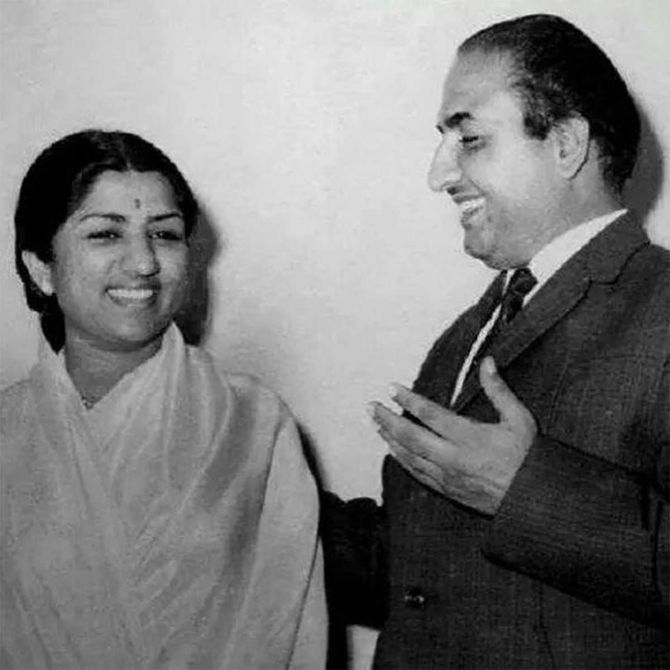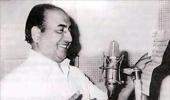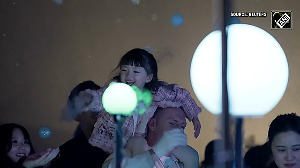Legendary singers Lata Mangeshkar and Mohammad Rafi played an instrumental role in the liberation of Dadra and Nagar Haveli, says a new book as it narrates in detail the little-known 1954 concert by the two iconic singers to raise funds for the movement.

Dadra and Nagar Haveli, now a Union Territory, were occupied by the Portuguese in 1783 and 1785, respectively. They continued to be ruled by the Portuguese till an armed revolution liberated them, and the Tricolour was unfurled at Silvassa on 2 August 1954.
The two enclaves were formally recognised as an integral part of India in 1961 along with Goa and Daman and Diu but unlike Goa's liberation, there was no direct intervention by the Indian armed forces in the case of Dadra and Nagar Haveli.
Recounting what led to the singers' participation for the liberation of the territory, Uprising, written by author Neelesh Kulkarni, says it all started when music director and freedom fighter Sudhir Phadke decided to meet Mangeshkar for help to raise funds for an armed revolution.
According to the book, Mangeshkar, who first seemed unconvinced with the plan, agreed after Phadke and his friends mentioned that the liberation of Dadra and Nagar Haveli was only a "prelude to the freedom of Goa".
Mangeshkar had an emotional connection with Goa and the Portuguese were harassing devotees coming to the temple of her family presiding deity, 'Lord Mangesh', in the village of Mangeshi in north Goa.
"Her eyes suddenly welled up with tears... The family derived their surname from the name of the village. The Portuguese had been regularly harassing devotees who came to the temple, and the frustration of not being able to do anything about that brought her over to their side in an instant.
"'You will allow me to serve my Lord Mangesh,' she said tearfully. 'I wish I could come and fight by your side, but since I cannot, I will help you raise resources. You tell me the date and I will be there,"' reads the book, quoting Mangeshkar.
The jubilation at securing her presence doubled when Mangeshkar suggested they should invite Mohammed Rafi to sing with her.
And Rafi, who met Phadke and team at the then newly inaugurated Mehboob Studios in Bandra, said 'yes' readily.
The meeting, which was supposed to last for 10 minutes, went on for an hour as Rafi asked question after question about how the group was planning to execute their plans, says the book.
"He was so impressed that he held up a hand when Nana Kajrekar (also a freedom fighter) told him he would arrange his railway tickets to and from Pune. 'This country is also mine,' Rafi said, 'and if all of you are preparing to put your lives on the line for it, the least I can do is buy my tickets.'"
Unfortunately, the concert didn't go as per their plan as Mangeshkar met with a road accident in April, 1954, the day she was supposed to perform. The singer tried to reach despite the accident, but it was cancelled by then.
"Lata and Rafi finally arrived at the venue at 11.30 pm. and saw it was dark and deserted... She stayed with the Phadkes that night, and before leaving promised that she would cancel whatever she was doing to perform on whichever date they scheduled the concert next," informs the book.
The concert was finally held on May 2 at the same venue. The programme was a hit, and though the venue was not as jam-packed as the first time, the revenue, according to the author, was still substantial.
"From the proceeds of the concert, they (the freedom fighters) planned the whole project and they were able to buy five rifles and three pistols from the black market in Hyderabad.
"And it is with these five rifles and three pistols, that at a maximum 29 of them attacked more than 300 fully armed Portuguese and threw them out of the Dadra and Nagar Haveli," said Kulkarni during the recent launch of the book at India International Centre (IIC).
"Uprising: The Liberation of Dadra and Nagar Haveli", published by Westland Books, uses interviews with descendants of the participants -- and a handful of participants themselves -- newspapers, archival records, letters and diary entries, to put together the pieces of this little-known history.










